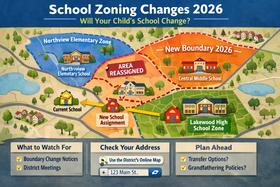Forget Adam and Eve or sex education. The latest curriculum controversy surrounds global warming. In fact, South DakotaŌĆÖs legislature recently passed a resolution that called for the ŌĆ£balanced teaching of global warming.ŌĆØ Global warming, the resolution states, is ŌĆ£a scientific theory rather than a proven fact.ŌĆØ
Some States Mandate That ŌĆ£Both SidesŌĆØ of Global Warming be Addressed
According to the , South Dakota is not the only state to have introduced legislation addressing the question of how global warming should be taught in schools. Among the other states that have taken or are considering such steps include:
- Texas - The Texas Board of Education declared in 2009 that public school teachers must present both sides when discussing global warming and evolution.
- Kentucky ŌĆō A bill recently introduced in the Kentucky legislature encourages teachers to discuss ŌĆ£the advantages and disadvantages of scientific theories,ŌĆØ as the Times reports, including ŌĆ£evolution, the origins of life, global warming and human cloning.ŌĆØ
- Louisiana ŌĆō LouisianaŌĆÖs state legislature passed a law in 2008 that says that the state board of education ŌĆ£may assist teachers in promoting ŌĆścritical thinkingŌĆÖŌĆØ on subjects such as evolution and global warming, according to the Times.
This video from PBS looks at attempts to rein in climate change education.
Why Global Warming and Evolution Are Linked Together
Legislators may be using the question of whether global warming should be taught as a






















